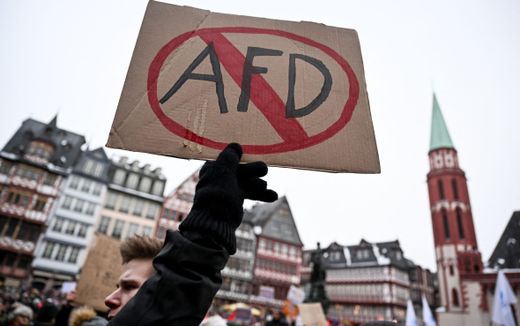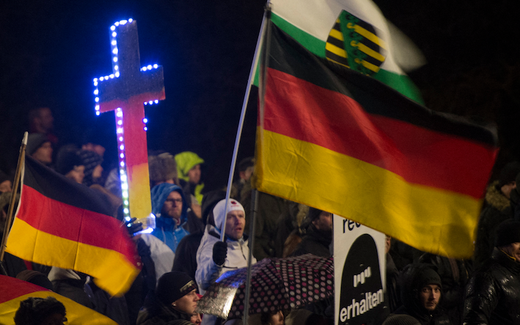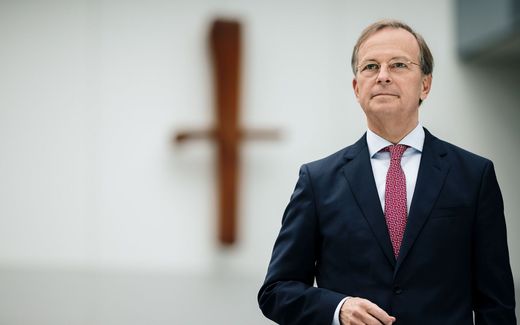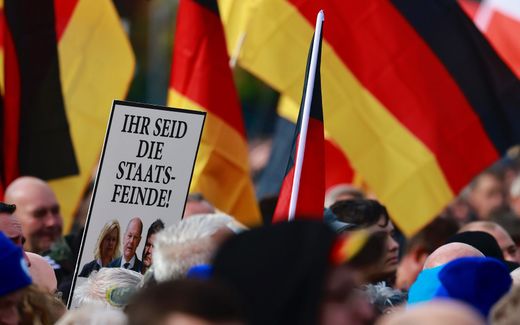Column from Germany: Should I be concerned about rising right-wing extremism in Christian regions?
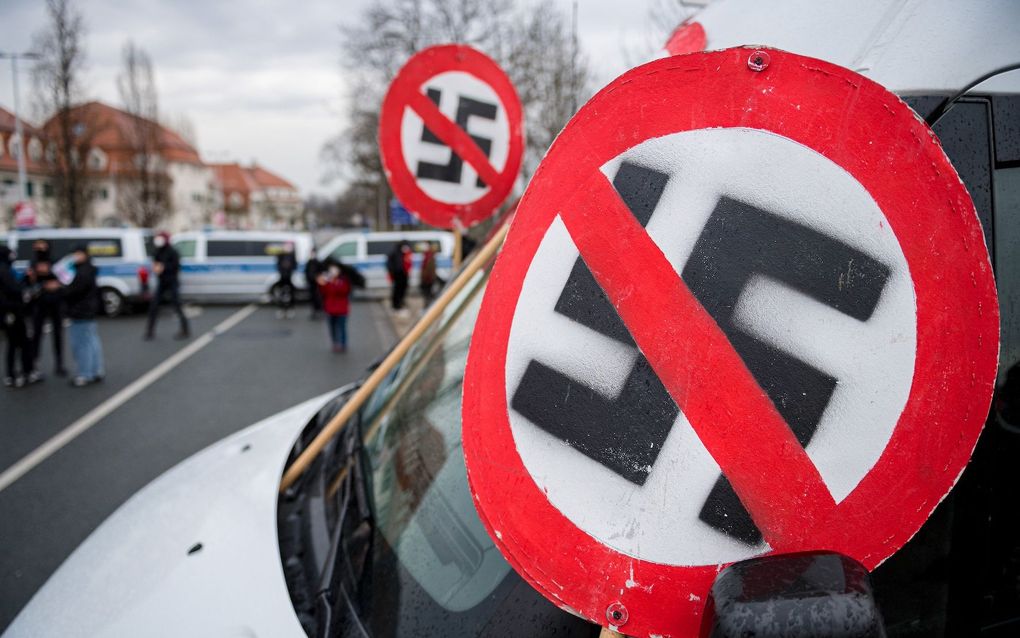
Anti-AfD demonstration in Dresden, eastern Germany. Photo AFP, Jens Schlueter
Christian Life
It was long ago that we saw so many demonstrators in Germany. It all has to do with a secret meeting of right-wing extremists, considering the mass deportation of people who have fled to our country is moving many, many people.
Following the publication of this meeting with participants from the far-right “Alternative for Germany” (AfD) party, there were not only horrified reactions from politicians and church leaders but also an increasing number of demonstrations in major German cities. In Berlin, the police estimated the number of participants outside the Bundestag at around 100,000.
There were so many people that big streets had to be cleared as more and more participants flocked to the road. According to police estimates, around 50,000 people demonstrated in Bremen; in Hamburg, the police counted 50,000 participants, and in Frankfurt, there were around 40,000.
There must have been a quarter of a million or more demonstrators in many cities in total. That is a remarkable testimony to civil society, something that has not been seen in Germany for a very long time! But that is only one side of the coin.
The other side is this: According to current opinion polls, 20 to 25 per cent of Germans would consider voting for exactly this AfD party. In eastern Germany, in particular, formerly governed by communists, there is even the possibility that this party will form the government in one or two federal states in the autumn. In the state of Saxony, the AfD has 35 per cent of votes in opinion polls. But Saxony is the very state that might be the most Christian state in eastern Germany.
Public outrage, therefore, does not correspond to the intentions of large sections of the population, who are often referred to in German as the “silent majority”.
Remarkably, some representatives of the AfD did not deny the allegations about the ‘secret meeting’ after they became known, but on the contrary, emphasised that this was precisely the intention of their party and that they promised voters that they would implement this after being elected.

No doubt, expelling people from the country in which they live is a clear violation of human rights, as enshrined in the UN Declaration of Human Rights. This declaration is the applicable law in Germany. However, the secret meeting was not “only” about sending people who had fled to Germany back somewhere – also, people with German citizenship were to be expatriated and deported. This would be a violation of not only the UN Declaration of Human Rights but also of the German constitution.
That is why there are increasingly loud voices calling for this party to be banned as unconstitutional. Such a thing is possible in Germany but is associated with very high hurdles and a long duration. Many politicians oppose a ban because this party, its ideas, and the people who want to vote for it need to be addressed.
Unfortunately, at the moment, it is challenging to come to terms with this because Germany has one of the weakest federal governments in a long time. Federal Chancellor Olaf Scholz finds communicating difficult, and the three-party government is divided on content.
If new elections were held now, the Chancellor’s party, the time-honoured Social Democratic Party (SPD), would probably receive less than 15 per cent of the vote. And the three-party government coalition as a whole would undoubtedly lose the election.

Is this a hopeless situation? An inevitable path to a right-wing extremist state government in eastern Germany that is planning unconstitutional deportations?
For Christians, it is an impossible prospect. But it is impossible for a second reason because we know God has everything in his hands. That is why many Christians in Germany hope and pray that this development will not occur and that a miracle will happen to save us from it.
Related Articles


